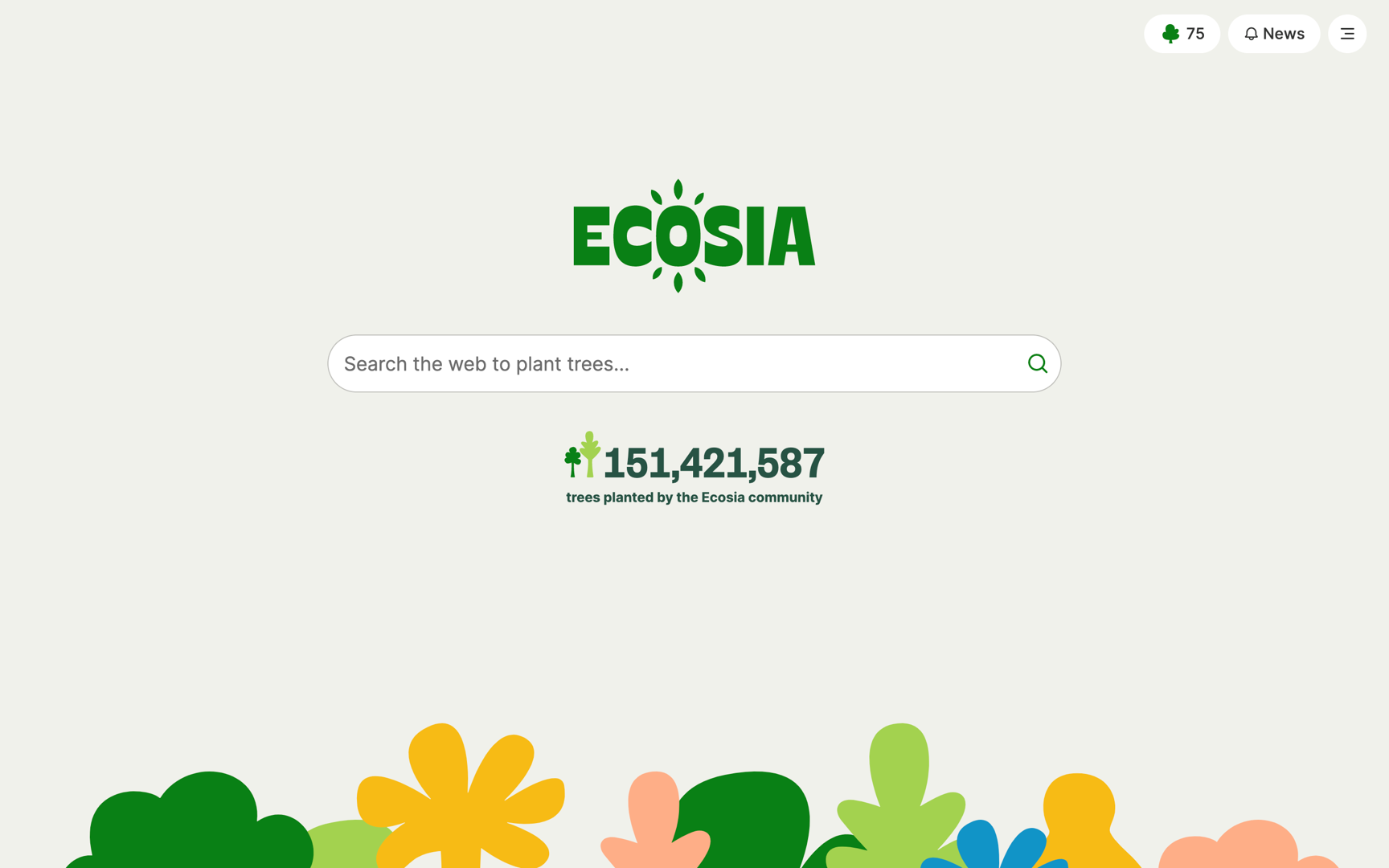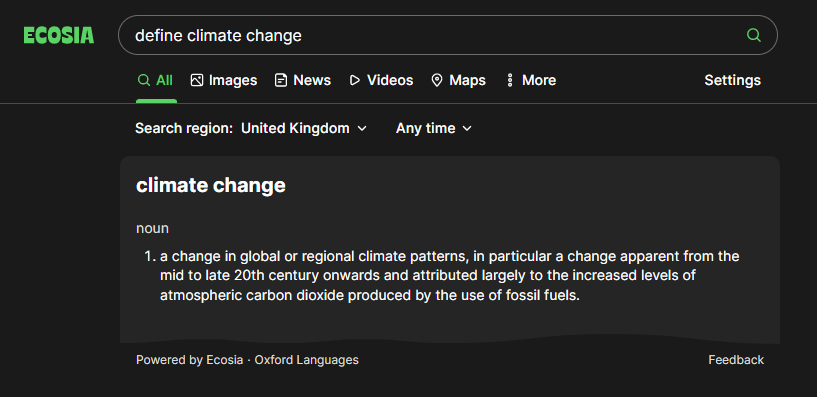Ecosia use Oxford Languages dictionary data in their search engine

Ecosia’s search engine has captured the attention of users and news outlets around the world with their unique mission of planting trees for searches. Ecosia allow their users to track their impact on ecosystems and communities as they search. Working with local organisations around the world, Ecosia currently plant trees in 35+ countries.
Learn more about Ecosia, powered by Oxford Languages data ⟶
Ecosia have secured their place in the search engine market and are successfully attracting users who are concerned about the climate and want to make a difference. Of course, Ecosia have an interest in providing their users with the best experience they can, to make sure they’re able to continue the great work they’re doing. Naturally, analysing what users are searching for, to what volume, and whether they’re managing to serve useful results is of great importance.
One area they noticed a significant volume of searches was in users searching for dictionary definitions, i.e. what certain words actually mean. This presented an opportunity for Ecosia to think further about how to offer users the best experience possible.
To maximize their impact, Ecosia engaged Oxford Languages to explore how they might be able to foreground our dictionary data in their search results. Through licensing our human-curated dictionary data, Ecosia enabled themselves to serve dictionary definitions from right within the search results, reducing the need for users to click through to an additional website to answer their question.

The introduction of this feature to the search experience has increased the speed they are able to answer user queries around dictionary definitions, increasing overall satisfaction and reducing irritation caused by browsing less clear websites.
Learn more about our dictionary data for search engines ⟶
If you have any questions or would like to learn more about our world-renowned language data, please don’t hesitate to get in touch. Our team is on hand to help:
Our Privacy Policy sets out how Oxford University Press handles your personal information, and your rights to object to your personal information being used for marketing to you or being processed as part of our business activities.
